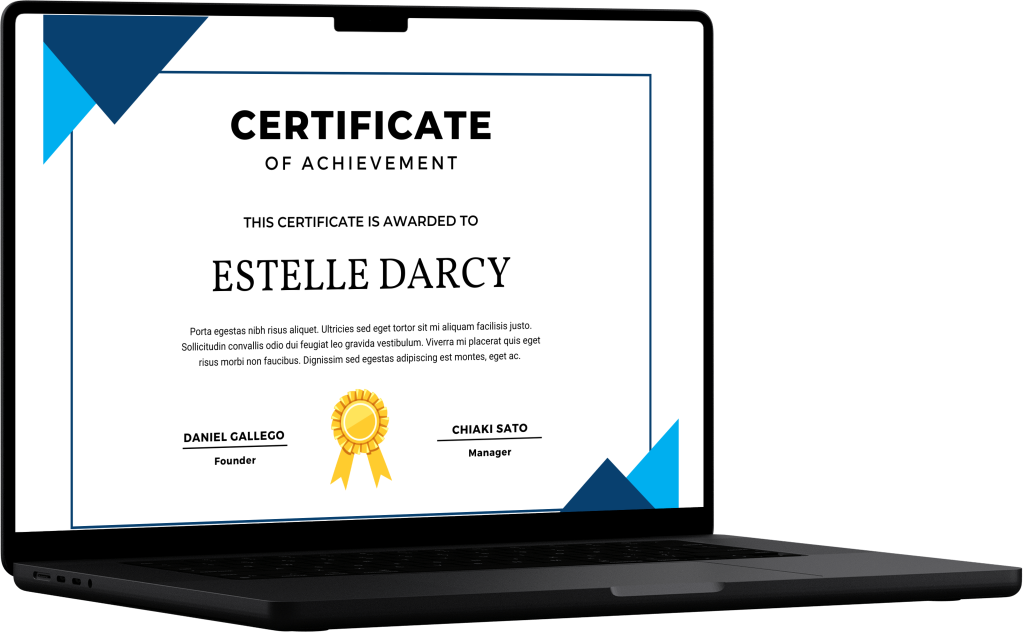September 13-14, 2023: HDD for Pipelines – Engineering Applications for Feasibility, Design and Stress Analysis (2-DAY)
-
Author: David Willoughby
-
Level: Advanced
-
Study time: 13 hours
Write your awesome label here.
Course overview
The Horizontal Directional Drilling webinar is offered as a thirteen-hour webinar that covers Horizontal Directional Drilling (HDD) feasibility analysis and design. This webinar provides technical information on HDD equipment, design, product pipe stress analysis, and construction techniques. The course is geared to provide the student with a thorough knowledge of the HDD basics and transition to an in-depth overview of HDD feasibility and design. A key aspect of HDD design is determining if crossing an obstacle by HDD is technically feasible. That is, can the proposed crossing be installed using today’s tools and techniques? Technical feasibility is demonstrated primarily by comparing the proposed crossing with previously completed installations.
There are many factors to consider when evaluating the technical feasibility of an HDD project. Conducting a site survey, usually, the first step is important for all HDD projects and is a significant part of the HDD site characterization. The site survey should include both surface and some level of subsurface investigations. This webinar will cover the basic tasks from a site survey. We will discuss information related to the surface and subsurface feasibility concerns. We will discuss how existing features, both natural and man-made, can impact the way an HDD crossing is configured. We will discuss how the subsurface conditions can impact the various phases of the HDD construction. We will look at the key characteristics such as earth material types, stratification, and groundwater conditions. Also included are the various aspects of the site’s surface such as the topographic/hydrographic relief and the presence of human activities.
Due to an increasing focus on minimizing environmental impact, it has become standard practice in the HDD industry to evaluate the potential for drilling fluid to inadvertently flow to the surface due to hydrofracture. We discuss methods for evaluating the risk of inadvertent returns due to hydrofracture by comparing the confining capacity of the soils overlying the drilled path to the annular pressure necessary to conduct HDD operations. The course focus will be on HDD with steel and plastic pipelines. The webinar includes design calculations with examples.
We will also include demonstrations of the applicable HDD PowerTool (HDDPT) Modules.
This is a 2-day class, the following are the times for each day:
START TIME: 8:30 a.m. (CDT)
END TIME: 2:30 p.m. (CDT
There are many factors to consider when evaluating the technical feasibility of an HDD project. Conducting a site survey, usually, the first step is important for all HDD projects and is a significant part of the HDD site characterization. The site survey should include both surface and some level of subsurface investigations. This webinar will cover the basic tasks from a site survey. We will discuss information related to the surface and subsurface feasibility concerns. We will discuss how existing features, both natural and man-made, can impact the way an HDD crossing is configured. We will discuss how the subsurface conditions can impact the various phases of the HDD construction. We will look at the key characteristics such as earth material types, stratification, and groundwater conditions. Also included are the various aspects of the site’s surface such as the topographic/hydrographic relief and the presence of human activities.
Due to an increasing focus on minimizing environmental impact, it has become standard practice in the HDD industry to evaluate the potential for drilling fluid to inadvertently flow to the surface due to hydrofracture. We discuss methods for evaluating the risk of inadvertent returns due to hydrofracture by comparing the confining capacity of the soils overlying the drilled path to the annular pressure necessary to conduct HDD operations. The course focus will be on HDD with steel and plastic pipelines. The webinar includes design calculations with examples.
We will also include demonstrations of the applicable HDD PowerTool (HDDPT) Modules.
This is a 2-day class, the following are the times for each day:
START TIME: 8:30 a.m. (CDT)
END TIME: 2:30 p.m. (CDT
PDH Certificate included upon successful completion

-
Course Outline
Day 1:- HDD Basics
- HDD Equipment & Tracking
- Subsurface Conditions
- Borehole Stability
- HDD Feasibility
-
Day 2:
- HDD Design
- Steel Pipe Stress Analysis
- Plastic Pipe Stress
-
David Willoughby
HDD and Cathodic Protection Design SME, Former Director RK&K,
ABOUT David
David Willoughby has 40 years of experience in engineering, pipeline design, corrosion control, and management in the petroleum and utilities pipeline industry. His experience includes gas transmission and distribution systems, petroleum facilities, and water/sewer pipelines from conception through design, construction and testing, economic evaluation, and project field supervision. Mr. Willoughby has been responsible for the design, permitting, inspection, and construction administration of numerous horizontal directional drills (HDD) on pipeline projects. He is the author of several articles and two books published by McGraw-Hill, The Plastic Piping Handbook (2002) and Horizontal Directional Drilling (2005).
Mr. Willoughby provides HDD training to the pipeline and utility industries. He has presented at the engineering workshop at N.C. Utilities Commission Office of the Pipeline Safety Conference and the Southern Gas Association Annual Conference. Mr. Willoughby’s HDD training is used to provide Professional Development Hours (PDU) for professional engineers in many states, including Texas.
Mr. Willoughby provides HDD training to the pipeline and utility industries. He has presented at the engineering workshop at N.C. Utilities Commission Office of the Pipeline Safety Conference and the Southern Gas Association Annual Conference. Mr. Willoughby’s HDD training is used to provide Professional Development Hours (PDU) for professional engineers in many states, including Texas.

